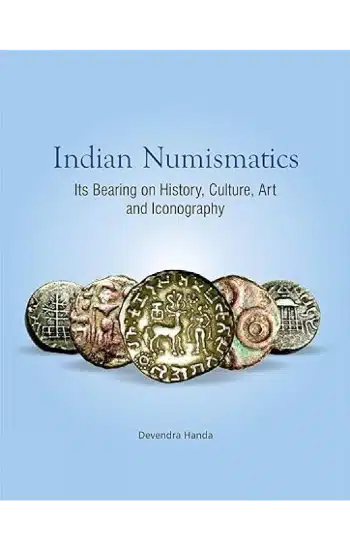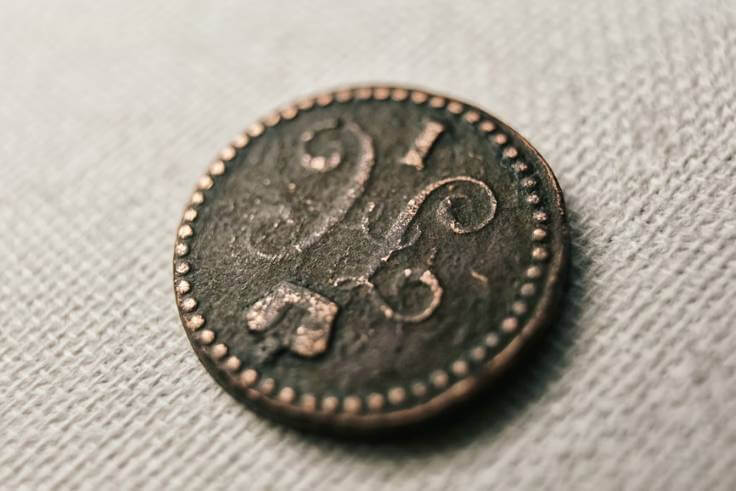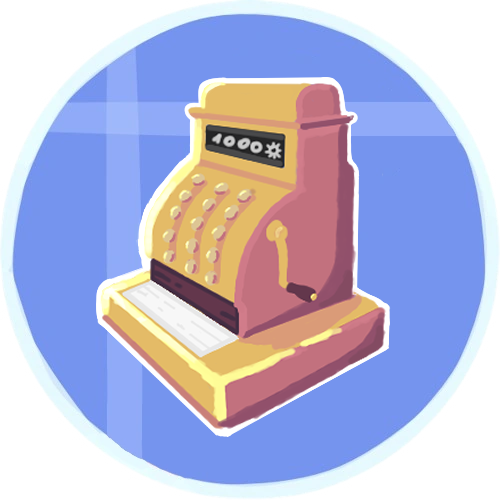New Tips For Picking Currency History And Euro
Wiki Article
How Do I Use A Numismatics Database With Museums?
Here's a method that is structured: This is a method that is structured: Select a database which catalogues museum collections and collections of numismatics. Museum databases, like the ones provided by The British Museum, Smithsonian Institution and online platforms focusing on collections of museums or numismatic artifacts, are options.
Define Research Focus: Specify your research objectives. Are you searching for the numismatics collection of a certain museum, exhibitions of coins, academic publications on numismatics, the contextual and historical contexts associated with numismatic exhibitions or books of scholarly research on numismatics. Determine the goal of your research.
Use keywords that relate to both numismatics (numismatics) as well as museums ("numismatic collection," coin exhibitions," catalogs for museums") Include specific museum or geographic names when appropriate. Results of a search can be filtered based on the date, theme for exhibitions, collection type or other advanced options.
Data Collection: Access data on numismatic objects in museums. The information includes precise descriptions photos, illustrations, provenance as well as historical significance. Look through digital catalogs that catalogue coins according to the period, the civilization, or thematic exhibitions.
Analysis: Examine your data in order to gain a better understanding of the significance and importance of the numismatic collections in museums. Learn how museums interpret and curate coins within the context of broader cultural and historical narratives. Examine how different museums present material by making use of educational frameworks as well as strategies to interpret.
Cross-Reference: Verify the accuracy of your research by cross-referencing data from multiple databases of museums and scholarly sources. This method ensures that your research is reliable and complete, providing you with a well rounded perspective of numismatics.
Documentation - Document your research findings in a systematic manner, citing the sources used and mentioning any methods. Notate the database names or search terms, as well as the relevance of each source to your study.
Keep up-to-date: The Numismatic Collection and museum exhibits evolve as time passes. Keep track of new acquisitions and temporary exhibitions. Scholarly publications may also enhance your research.
You can use databases to research numismatics in the intersection with museums by following these steps. This technique allows for a complete examination into the presentation and interpretation of coins, as well as scholarly exploration within museum settings. This provides insights into historical, cultural and educational value. Read the recommended learn more here about commemorative coins for more advice including coin expo, dime, currency forum, banknote society, currency exhibition, banknote dealer, coin holder, coin book, banknote album, coin series and more.

How Can I Search Numismatics For Exhibitions And Show Events By Using An Online Database?
The study of numismatics in relation to show and exhibition events requires using databases that store details about numismatic shows and shows, conferences and other related events. This is a systematic method for conducting such research. Some examples include the websites of some of the largest organizations in the field of numismatics, such as the American Numismatic Association.
Define Research Focus: Specify your research objectives. Do you wish to learn more about upcoming or previous numismatic events, conferences on numismatics and coin shows, regional coin exhibitions, thematic exhibits or educational events? Clarify the focus of your search.
Search Strategy: Make use of specific keywords, like "numismatic exhibitions" "coin exhibit," or "numismatic activities," along with the names of events, their locations and thematic focus if relevant. Sort results by advanced search features. This can be done by date, event types (such such as exhibitions and conferences) as well as geographic regions.
Find information about recent and forthcoming numismatic exhibitions and other events. Collect information such as event dates and times, locations and organizers, as well as themes and featured collections, exhibitor participation, as well as catalogs or publications. Locate databases that offer a online tours or digital access to exhibition materials.
Analyze and interpret the data that you have collected to understand themes, trends as well as the educational and educational benefits of numismatic displays and events. Evaluation: Evaluate the contribution of various exhibits and shows in bringing awareness to numismatics.
Cross-Referencing Verify your findings with information from multiple database databases, listings of events, or official websites. This ensures that your research is accurate and complete, giving you an entire overview of various numismatic events happening around the globe.
Documentation - Document your research findings in a systematic way by citing sources and highlighting methods. List the databases that you use as well as the search term(s) and the importance each resource has to your query.
Stay informed: Numismatics is a dynamic industry, with an ongoing stream of new events, such as talks, exhibitions, and conferences. Information from numismatic organizations, event planners, and specialized database are the best ways to stay informed about upcoming events.
Follow these steps to effectively examine numismatics and its relationship to exhibits and shows. This technique allows for an in-depth study of the range and educational value of numismatic shows and events across the globe. See the recommended coin engraving recommendations for blog info including czech coins, banknote value, coin identification, currency grading, numismatic investment, german coins, ringgit, mint, platinum, banknote and more.

How Can I Use The Numismatics Database To Conduct Research On Auction Houses And Numismatics?
Here's a systematic approach to conducting such research:Database Selection: Select databases that specialize in auction house catalogs as well as historical sales records and auction specialist expertise. This is a methodical approach to conducting such research: Database Selection Choose databases that are specialized in auction house catalogs and historical sales records. Examples include online auction platforms (such such as Heritage Auctions, Stack's Bowers Galleries) auction houses websites, as well as the numismatic research platforms which store auction results.
Define Research Focus: Specify your research objectives. Are you looking to learn more about the market value of specific coins, trends of numismatic collection, the influence of auction houses on value or the historical significance of auctions for numismatic scholarship. Find your area of interest to guide your investigation.
Search Strategy: Use keywords like "numismatic auctions," "auction house catalogs," "coin auction results," and include specific auction house names, or geographic regions where relevant. Advanced search options are available for filtering results by date and coin type. Additionally, you can select auction categories such as antique coins, contemporary coins, and paper money.
Data Collection: Access the catalogs of auction houses and sales records. Gather details such as auction dates description of lots, coin images, condition reports, provenance information and the prices that were realized. Browse databases with archived auction results as well as catalogs for a thorough analysis.
Analysis: Analyze information to better comprehend market dynamics and trends. Examine the value of rare coins, the patterns of auction activity and the effect auction house expertise has on the appraisal and attribution of the numismatic items.
Cross-References: Check what you have found by cross-referencing data from various auction house databases. Also, make sure to check the numismatic publications and historical auction archives. This lets you complete a thorough and precise investigation. You will also be able to see the ways auction houses are involved in numismatics.
Documentation - Record your research findings in a systematic manner by citing the sources you have used and noting any methodologies that were employed. Note down details like the database used, search terms used and relevance to the research issue.
Stay updated. Auctions for numismatics are dynamic nature with records and sales frequently breaking. Keep up-to-date by reading updates from auction houses, society for numismatics, and other auction databases.
You can make use of databases to investigate numismatics as they relate to auction houses using these steps. This permits a thorough investigation into market dynamics as well historical data about sales and knowledge of auction experts. See the top rated mint condition blog for website tips including denomination, coin club, coin errors, banknote certification, coin album, banknote authenticity, coin marketplace, coin issue, rand, coin holder and more.

How Can I Find Out More About Numismatics Through A Database Online Forums And Communities?
For conducting such research, here's a structured approach:Database Selection: Choose online forums and communities that specialize in the field of numismatics. These platforms let collectors, fans and experts to exchange knowledge as well as discuss the latest trends and display collections. Here's a systematic method to carry out such research. Examples include forums like CoinTalk on Reddit, r/Coins in Facebook and other communities that focus on numismatics.
Define Research Focus: Specify your research objectives. Are you keen to know more about the current trends in collecting, debate particular coin types as well as historical times, ask opinions regarding authenticity and grading, or get in touch with experts in particular area of numismatics? Find out the purpose of your research.
Search Strategy: Use keywords related to the topic that you are interested in, for example "numismatic forum," "coin collecting community,"" "online discussions on Numismatics" and keywords related to specific subjects, (ancient coins or contemporary coins) or keywords that relate to the research question. Utilize the search function within each platform to locate relevant threads and discussion forums.
Data Collection: Search through discussions, threads or posts and other data in forums online and community. Learn about collecting strategies and coins, market trends and personal experiences of numismatic discoveries. Also, discuss various aspects of culture or history related to coinage.
Analyze the data to gain a better understanding of the opinions, experiences, and expertise that are shared by people who belong to online numismatic groups. Examine the veracity of information by considering the knowledge of contributors, the consensus among members on specific issues, as well as the extent of discussions.
Cross-Referencing. You can verify your conclusions by comparing data from multiple forums. Compare insights on different platforms in order to gain more perspective on collecting trends and market sentiments.
Documentation: Document your findings consistently, including specific threads, discussions and contributors when required. Keep track of key insights, trends, and opinions shared within the online forums and communities.
Keep active: Participate in discussion and post questions to discover more about and build connections within the community of numismatists. Stay informed by following the latest threads, posting replies and making announcements.
Follow these steps to successfully use online communities and forums for the study of numismatics. This method allows you to tap the collective knowledge and expertise of a broad collection of experts and collectors, providing valuable insight and perspectives on various aspects of identifying and appreciating coins. Check out the recommended rand for blog advice including precious metals, coin issue, banknote catalog, proof coins, forint, coin blank, quarter, banknote, coin rarity, banknote holder and more.

How Do I Use An Numismatics Database For Networking Opportunities?
When conducting research in numismatics that is focused on networking, it's essential to use databases and other platforms. These will help you connect with collectors, dealers researchers and other enthusiasts. Here's a method to conduct this numismatic study: Databases and Platforms: Select databases that are geared towards numismatic networks. This includes numismatic websites as well as online communities (such as CoinTalk or Reddit's r/Coins), professional networking platforms as well as social media communities.
Definition of Research Focus : Specify networking objectives. Are you looking to meet collectors for knowledge exchange or in interacting with dealers or in sales? Or in working with researchers and scholars on research projects or in conferences and numismatic events? Find out what you are looking for to guide your research.
Search Strategy: Use keywords like "numismatic networks," "coin collecting forums" or "numismatic groups on social media" and if appropriate include geographical areas or particular interests. Utilize search functions within platforms to locate relevant groups, forums and events.
Access data on networking within the numismatic community. Find out information about group descriptions, membership benefits (such as the ability to attend events and discussions as well as resources) as well as upcoming events (like auctions or exhibitions, conventions) and profiles of key influencers or event organizers.
Analysis: Examine the data to find pertinent networking channels and opportunities. Analyze the levels of engagement in forums and groups, the variety (collectors/dealers/scholars) as well as the frequency and quality of discussions, and the potential for collaborations.
Cross-Reference: Confirm the information you've collected by comparing it to other databases, websites belonging to numismatic societies, social media groups and professional networks. This will allow you to discover the most comprehensive opportunities across platforms and regions.
Engage: Be active in your interactions with the networks you choose. Participate in discussion and pose questions. Contribute your knowledge. Create connections with collectors, dealers and scholars to build your connections and share valuable numismatic knowledge.
Documentation. Keep track of your networking activities by capturing the groups, platforms as well as the events and contacts you have made. Note the outcomes and opportunities that you achieve by networking.
Follow these steps to use databases effectively to explore the world of numismatics in relation to networking opportunities. This method lets you extend your professional or personal network within the numismatic community, helping to facilitate collaborations, exchange of knowledge, and participation in numismatic activities that enrich your understanding and involvement in the field. Check out the best gold coins for website tips including banknote history, banknote club, coin forum, currency collecting, coin magazine, coin errors, currency collecting, banknote society, coin catalog, rand and more.
